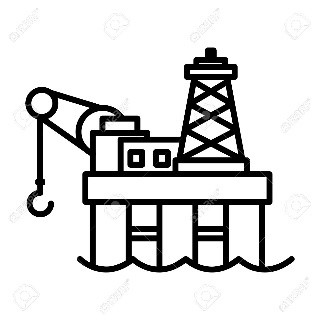High potential near miss: slip on tag line during crane operations

What happened?
The Marine Safety Forum (MSF) reports an incident in which a crewman slipped and fell during lifting operations. The incident occurred when a vessel was preparing for cargo transfer to an offshore installation. Two crew were on deck ready to hook a load onto the installation crane. A tag line was attached to the load. As the load was hooked on, one of the seamen was seen to fall to the deck. Crane movement was stopped; the seaman got back on his feet and was uninjured.
The MSF notes that this near miss had a high potential for serious injury:
- The crane could have lifted the load and it could have collided with the seaman when he had fallen;
- The crane could have lifted the load and the tag line could have tightened around the seaman’s leg lifting him off the deck.
What went wrong? What were the causes?
After hooking on, the seaman had hold of the middle part of the tag line, and took a step back. He stood on the tag line, tripped and fell.
The MSF notes that industry guidelines (Guidelines for Offshore Marine Operations (GOMO)) state that the use of tag lines should generally be avoided. However, it is recognised that certain conditions may require the use of them – this operation required the use of a tag line due to the relatively very light and fragile nature of the item being transferred.
The guidelines go on to state:
- All sections of the line, including slack must be kept in front of the body, between the handler and the load;
- Where two or more persons are handling the same line, ALL must work on the same side of the line. Any slack must be kept in front of the group.
The MSF alert continues: “It is recognised that utilising tag lines with standard cargo units inherently puts distance between the handlers and tag line due to the dimensions involved. In this case, with a small box to be transferred, the tag line was far closer to the handlers and required further care and preparations to avoid conflict.”
What lessons were learnt? What actions were taken?
- The MSF notes that additional pre-planning should have been conducted:
- identify which side of the loads the cargo handlers were to work from and the direction in which they will move away
- run the tag line at the opposite side of the load and in the other direction;
- The risk assessment for deck cargo operations was reviewed particularly with respect to the use of tag lines. The crew were formally briefed (and a recork kept thereof) on the contents of the reviewed risk assessment;
- Additional training in the use of tag lines, particularly when dealing with small or fragile loads, was carried out;
- Future operations would be more closely monitored from the Bridge.
Members may wish to refer to the following guidelines:
Members may wish to review the following incidents:
Safety Event
Published: 23 August 2017
Download: IMCA SF 21/17
IMCA Safety Flashes
Submit a Report
IMCA Safety Flashes summarise key safety matters and incidents, allowing lessons to be more easily learnt for the benefit of all. The effectiveness of the IMCA Safety Flash system depends on Members sharing information and so avoiding repeat incidents. Please consider adding safetyreports@imca-int.com to your internal distribution list for safety alerts or manually submitting information on incidents you consider may be relevant. All information is anonymised or sanitised, as appropriate.
IMCA’s store terms and conditions (https://www.imca-int.com/legal-notices/terms/) apply to all downloads from IMCA’s website, including this document.
IMCA makes every effort to ensure the accuracy and reliability of the data contained in the documents it publishes, but IMCA shall not be liable for any guidance and/or recommendation and/or statement herein contained. The information contained in this document does not fulfil or replace any individual’s or Member's legal, regulatory or other duties or obligations in respect of their operations. Individuals and Members remain solely responsible for the safe, lawful and proper conduct of their operations.
